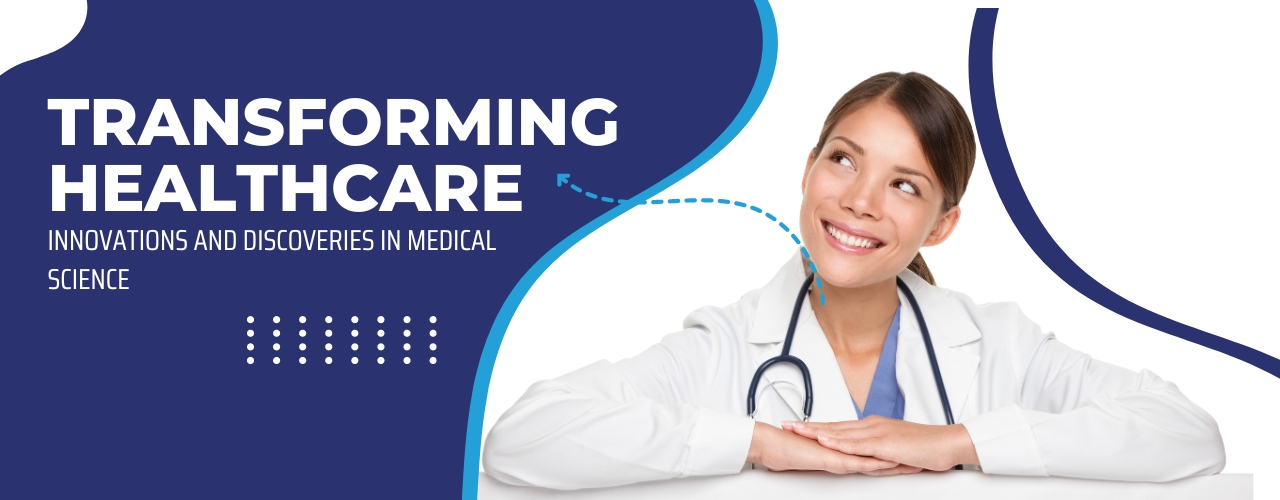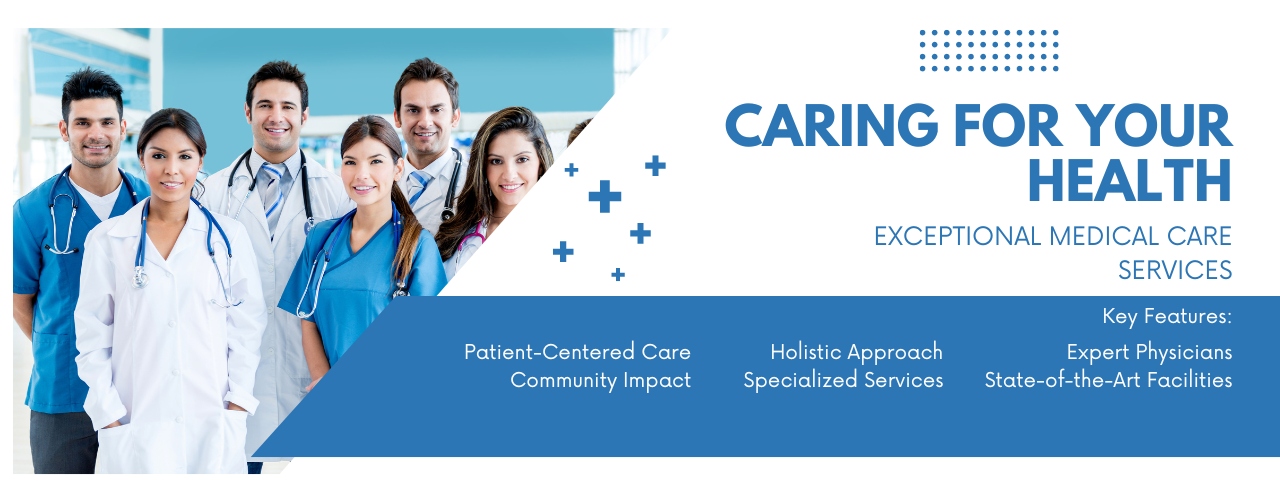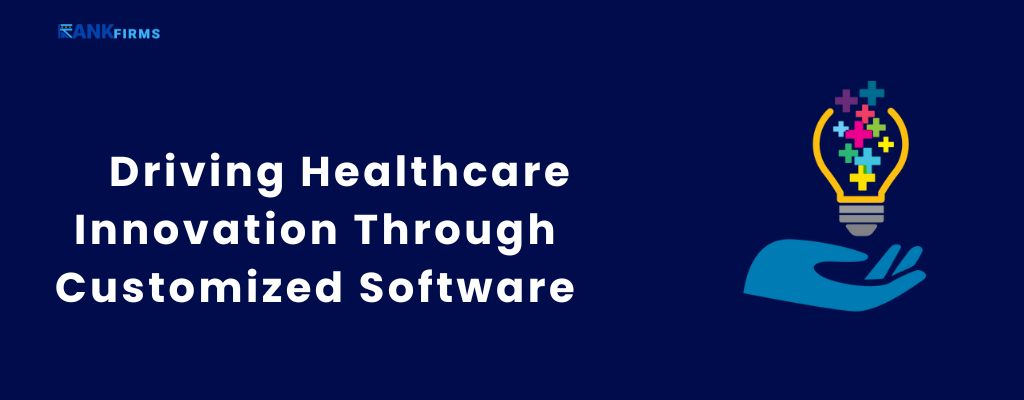Introduction:
In today’s rapidly evolving healthcare landscape, the role of customized software solutions is increasingly pivotal in driving innovation and transforming patient care. From streamlining administrative tasks to facilitating remote consultations and personalized treatment plans, healthcare software plays a vital role in improving efficiency, accuracy, and patient outcomes.
The Impact of Healthcare Software in Everyday Life
Healthcare software has become an integral part of our daily lives, enhancing accessibility to medical services and empowering individuals to take charge of their health. Healthcare Software Development Companies play a crucial role in shaping the landscape of healthcare technology, driving innovation, and improving patient outcomes through cutting-edge solutions. Consider the following statistics:
1. Telemedicine:
According to the American Telemedicine Association, telehealth visits have surged by over 50% in recent years, enabling patients to consult with healthcare providers remotely, particularly amidst the COVID-19 pandemic.
2. Health and Fitness Apps:
Statista reports that the global health and fitness app market is projected to reach $15.6 billion by 2027, reflecting the increasing adoption of apps for tracking physical activity, monitoring nutrition, and managing chronic conditions.
3. Electronic Health Records (EHR):
The adoption of EHR systems has significantly increased, with over 85% of office-based physicians in the United States utilizing electronic health records, as reported by the Office of the National Coordinator for Health Information Technology.
These statistics underscore the transformative impact of healthcare software on improving healthcare delivery, patient engagement, and overall wellness.

20-25+ Healthcare Software Ideas for Industry Advancement
1. Personalized Medication Management App:
This app could allow users to input their medication regimen, receive reminders for doses, and track their adherence to prescribed medications. Additionally, it could provide information about potential drug interactions and side effects tailored to the individual’s medical history and conditions.
2. Remote Patient Monitoring System:
A remote patient monitoring system enables healthcare providers to remotely track patients’ vital signs, symptoms, and other health data in real-time. This facilitates early detection of health issues, reduces the need for frequent hospital visits, and improves patient outcomes, especially for those with chronic conditions.
3. Virtual Health Assistant for Symptom Assessment:
This tool could utilize AI algorithms to assess users’ symptoms and provide recommendations for appropriate actions, such as self-care measures, scheduling a doctor’s appointment, or seeking emergency medical attention. It can offer reassurance and guidance to users while reducing unnecessary visits to healthcare facilities.
4. AI-Powered Diagnostics Platform:
An AI-powered diagnostics platform can analyze medical images, lab results, and patient data to assist healthcare providers in making accurate and timely diagnoses. This technology can expedite diagnosis, improve diagnostic accuracy, and enhance patient outcomes.
5. Chronic Disease Management Tool:
This software could help patients with chronic conditions, such as diabetes or hypertension, to track their health metrics, monitor their progress, receive personalized lifestyle recommendations, and communicate with their healthcare team for ongoing support and management.
6. Mental Health and Wellness App:
A mental health and wellness app could offer resources for stress management, mindfulness exercises, mood tracking, and access to licensed therapists or counselors through teletherapy sessions. It aims to promote mental well-being and provide support for individuals experiencing psychological distress.
7. Elderly Care Coordination Platform:
This platform facilitates communication and coordination among family caregivers, healthcare providers, and eldercare services. It can include features such as medication reminders, appointment scheduling, caregiver logs, and emergency alerts to ensure the safety and well-being of elderly individuals.
8. Rehabilitation and Physical Therapy App:
This app provides personalized exercise routines, instructional videos, progress tracking, and communication channels with physical therapists for individuals undergoing rehabilitation or physical therapy. It empowers users to take an active role in their recovery process and facilitates continuity of care.
9. Healthcare Staff Scheduling Software:
This software streamlines the scheduling of healthcare professionals, ensuring adequate staffing levels, managing shift rotations, and optimizing resource allocation. It enhances operational efficiency, minimizes scheduling conflicts, and improves staff satisfaction.
10. Patient Engagement and Education Portal:
A patient engagement portal offers educational resources, health information, interactive tools, and communication channels for patients to actively participate in their healthcare journey. It promotes health literacy, fosters informed decision-making, and strengthens the patient-provider relationship.
11. Clinical Decision Support System:
This system integrates clinical guidelines, evidence-based practices, patient data, and predictive analytics to assist healthcare providers in making informed clinical decisions. It enhances diagnostic accuracy, treatment efficacy, and patient safety by reducing medical errors and variability in care.
12. Wearable Health Tech Integration Platform:
This platform aggregates data from wearable devices, such as fitness trackers, smartwatches, and medical sensors, to provide insights into users’ health and wellness metrics. It enables continuous monitoring, early detection of health issues, and personalized interventions based on real-time data.
13. Allergy and Medication Alert System:
An allergy and medication alert system alerts users and healthcare providers about potential allergens, drug interactions, contraindications, and adverse reactions based on the individual’s medical history and medication profile. It enhances medication safety and prevents allergic reactions.
14. Telepsychiatry and Counseling Platform:
This platform offers secure video conferencing, messaging, and virtual appointments for mental health consultations, therapy sessions, and psychiatric assessments. It improves access to mental health services, particularly in underserved areas, and reduces barriers to seeking help.
15. Virtual Reality Therapy for Pain Management:
Virtual reality therapy utilizes immersive experiences and interactive simulations to distract patients from pain, reduce anxiety, and promote relaxation. It complements traditional pain management strategies and offers a non-pharmacological approach to pain relief.
16. Nutrition and Meal Planning App:
This app provides personalized meal plans, nutrition tracking, recipe suggestions, and dietary recommendations tailored to users’ health goals, preferences, and dietary restrictions. It promotes healthy eating habits, facilitates weight management, and supports overall well-being.
17. Healthcare Supply Chain Management Software:
This software optimizes inventory management, procurement processes, and supply chain logistics for healthcare facilities, ensuring timely access to essential medical supplies, reducing waste, and controlling costs. It enhances operational efficiency and resilience in healthcare delivery.
18. Population Health Analytics Platform:
This platform aggregates and analyzes population-level health data to identify trends, patterns, and risk factors affecting community health. It informs public health interventions, resource allocation, and policy decisions to improve population health outcomes.
19. Teleophthalmology for Eye Care Services:
Teleophthalmology enables remote screening, diagnosis, and management of eye conditions through digital imaging, visual assessments, and virtual consultations with ophthalmologists. It expands access to eye care services, particularly in rural or underserved areas, and facilitates early detection of eye diseases.
20. Dental Practice Management Software:
This software streamlines administrative tasks, appointment scheduling, patient records management, billing, and insurance claims processing for dental practices. It enhances practice efficiency, improves patient experience, and ensures compliance with regulatory requirements.
21. Speech Therapy and Language Development App:
This app offers speech exercises, language games, pronunciation practice, and interactive activities to support speech therapy and language development in children and adults with communication disorders. It promotes speech fluency, articulation, and language skills improvement.
22. Maternal and Child Health Tracking Tool:
This tool allows expectant mothers and parents to monitor pregnancy progress, fetal development, vaccination schedules, growth milestones, and pediatric health metrics. It empowers caregivers to make informed decisions and promotes maternal and child health.
23. Dermatology Consultation and Skin Health App:
This app enables users to capture and upload photos of skin conditions, receive dermatologist consultations, and access personalized skincare recommendations and treatment plans. It facilitates early detection of skin issues, promotes skin health, and improves access to dermatological care.
24. Medical Imaging Analysis Software:
This software utilizes artificial intelligence and image processing algorithms to analyze medical images, such as X-rays, MRIs, and CT scans, for diagnostic purposes. It enhances image interpretation accuracy, reduces interpretation time, and assists radiologists in detecting abnormalities.
25. Palliative Care Coordination Platform:
This platform supports interdisciplinary communication, care coordination, symptom management, and advance care planning for patients receiving palliative care or hospice services. It promotes holistic and compassionate end-of-life care, aligning with patients’ preferences and goals.
These innovative healthcare software ideas have the potential to revolutionize healthcare delivery, improve patient outcomes, and drive greater efficiency across the healthcare ecosystem. By leveraging technology and embracing innovative solutions, the healthcare industry can advance toward a healthier and more connected future.

Frequently Asked Questions About Custom Healthcare Software Solutions
1. What is a custom healthcare software solution?
- A custom healthcare software solution is a tailor-made application or system designed to meet the specific needs and requirements of healthcare organizations, providers, or patients. It is developed to address unique challenges, streamline processes, and improve efficiency in healthcare delivery.
2. What are the benefits of custom healthcare software solutions?
- Custom healthcare software solutions offer numerous benefits, including improved workflow efficiency, enhanced data security and privacy, better patient outcomes, increased interoperability with existing systems, and scalability to accommodate future growth and changes in healthcare practices.
3. How does custom healthcare software differ from off-the-shelf software?
- Custom healthcare software is designed and developed according to the unique specifications and requirements of a particular healthcare organization or use case. Off-the-shelf software, on the other hand, is pre-built and may not fully align with the specific needs or workflows of a healthcare setting. Custom software offers greater flexibility, customization options, and scalability compared to off-the-shelf solutions.
4. What types of healthcare software solutions can be customized?
- Healthcare software solutions can be customized for various purposes, including electronic health records (EHR) systems, practice management software, telemedicine platforms, patient portals, medical billing and coding software, clinical decision support systems, remote patient monitoring tools, and more.
5. How does the customization process work for healthcare software solutions?
- The customization process typically involves collaboration between healthcare stakeholders and software developers to identify requirements, define functionalities, design user interfaces, integrate with existing systems, conduct testing and validation, and implement the solution. The process may vary depending on the complexity of the software and the specific needs of the healthcare organization.
6. What are the key considerations when customizing healthcare software?
- Key considerations include regulatory compliance (such as HIPAA in the United States), data security and privacy, interoperability with other systems, user experience and interface design, scalability, integration with existing workflows, training and support requirements, and ongoing maintenance and updates.
7. How can custom healthcare software solutions improve patient care?
- Custom healthcare software solutions can improve patient care by providing healthcare providers with easy access to patient information, facilitating communication and collaboration among care team members, enabling personalized treatment plans, enhancing patient engagement and empowerment, and supporting evidence-based decision-making.
8. What are the security measures implemented in custom healthcare software solutions?
- Custom healthcare software solutions prioritize data security and privacy by implementing measures such as encryption, access controls, authentication mechanisms, audit trails, regular security audits and assessments, compliance with industry standards and regulations, and adherence to best practices for securing healthcare data.
9. How can custom healthcare software solutions support interoperability with other systems?
- Custom healthcare software solutions can support interoperability by using standardized data formats and protocols (such as HL7, FHIR), implementing APIs for seamless integration with other systems, supporting data exchange and sharing across different platforms, and adhering to interoperability standards and regulations.
9. What is the typical timeline and cost for developing custom healthcare software solutions?
- The timeline and cost for developing custom healthcare software solutions can vary depending on factors such as the scope and complexity of the project, specific requirements, customization needs, regulatory compliance requirements, and the expertise of the development team. It is important to work closely with a reputable software development partner to establish realistic timelines and budgets for the project.

Conclusion
Customized software solutions are at the forefront of driving healthcare innovation, offering unprecedented opportunities to enhance patient care, optimize workflows, and address emerging healthcare challenges. By leveraging technology and embracing innovative software solutions, healthcare organizations can pave the way for a healthier and more connected future. As we continue to push the boundaries of what is possible, the potential for transformative impact in healthcare remains limitless.
Recommended Articles
- https://www.rankfirms.com/innovative-ai-business-ideas-entrepreneurs/
- https://www.rankfirms.com/website-development-ideas-startup/
- https://www.rankfirms.com/creative-strategies-e-commerce-business-ideas-startup/
- https://www.rankfirms.com/elearning-software-development-ideas/
- https://www.rankfirms.com/best-healthcare-app-development-ideas-for-entrepreneurs/
- https://www.rankfirms.com/magento-vs-shopify-which-is-best-e-commerce-platform/




